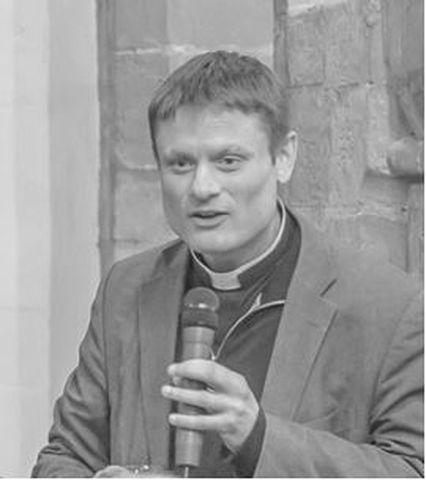
May News From the Clergy
21 Apr 2023 • From the Clergy
The coronation of Charles III this month is an almost unique event in the contemporary world. None of the other European constitutional monarchs are crowned, instead simply having a ceremony to swear an oath, and the longevity of Elizabeth II means many only know a crowning as a historic event. While the King became king at the moment of his mother’s death, this is still a highly symbolic moment. Seven decades have passed since the last coronation, hence the majority of people alive today will never have seen one. Unlike in 1953, when grainy black and white images flickered out from tiny screens on the enormous TV box, in 2023 we can watch it in full colour HD on flat screens, from a multiplicity of camera angles. While this may be new, and there have been many changes across the years, the core purpose and the main elements of the coronation ceremony have been in place for centuries, which is why there are still medieval relics like the inclusion of golden spurs among the regalia. At the centre of the service for most people will be the moment at which St Edward’s Crown (used only for coronations and never worn by the sovereign again) is placed upon the King’s head, the actual act of crowning.
The coronation is explicitly a religious ceremony which takes place in a church. Since 1066, only one coronation has not been held in Westminster Abbey, the hastily-arranged one of Henry III in 1216 taking place in Gloucester Abbey (now Gloucester Cathedral), and even he was later recrowned at Westminster. To emphasise the Christian significance, medieval coronations were held on Sundays or, in the case of William I (Christmas Day) and John (Ascension Day), on major religious feasts. Although the most visually arresting parts of the service are those where the monarch is invested with the regalia, arguably more important are the oaths and promises they make before that happens. Alongside promises relating to government are several about the Church of England, including the following question: ‘Will you to the utmost of your power maintain the Laws of God and the true profession of the Gospel?’ The monarch is presented with a Bible, ‘the most valuable thing that this world affords’.
Immediately prior to the anointing, itself an echo of Old Testament practice, is sung the Veni Creator Spiritus (Come, Holy Ghost, our hearts inspire). And while the order of service has not yet been released for 2023, in 1953 the anointing was preceded by the following words, said by the archbishop:
Bless and sanctify thy chosen servant ELIZABETH,
who by our office and ministry
is now to be anointed with this Oil,
and consecrated Queen:
Strengthen her, O Lord, with the Holy Ghost the Comforter;
Confirm and stablish her with thy free and princely Spirit,
the Spirit of wisdom and government,
the Spirit of counsel and ghostly strength,
the Spirit of knowledge and true godliness,
and fill her, O Lord, with the Spirit of thy holy fear,
now and for ever; through Jesus Christ our Lord.
The invoking of the Holy Spirit is thus a key part of the coronation service. Just like in the ordination of a deacon, priest or bishop, the archbishop prays that the Holy Spirit will guide the sovereign in their role. It is part of the old understanding that a monarch is called by God to their role, that it is a divinely-instituted office. We tend not to think of monarchy as a vocation, but that is at the heart of the coronation and the reason the prayers for the Holy Spirit occupy such a central place.
And in the month we also celebrate Pentecost, that is something upon which we should reflect. Outside of the church, especially beyond ministry, we don’t tend to talk in terms of vocation. Yet the Pentecost story is a reminder that God has a role for everyone, no matter how seemingly insignificant or unlikely. When we pray for the gift of the Holy Spirit, we can have no way of knowing how he will use us. Our vocations may not be as clear or as elevated as that of a king, but we all have one, and it is for us to accept God’s calling and know that he alone knows where he will lead us in his service.
Phil Bradford